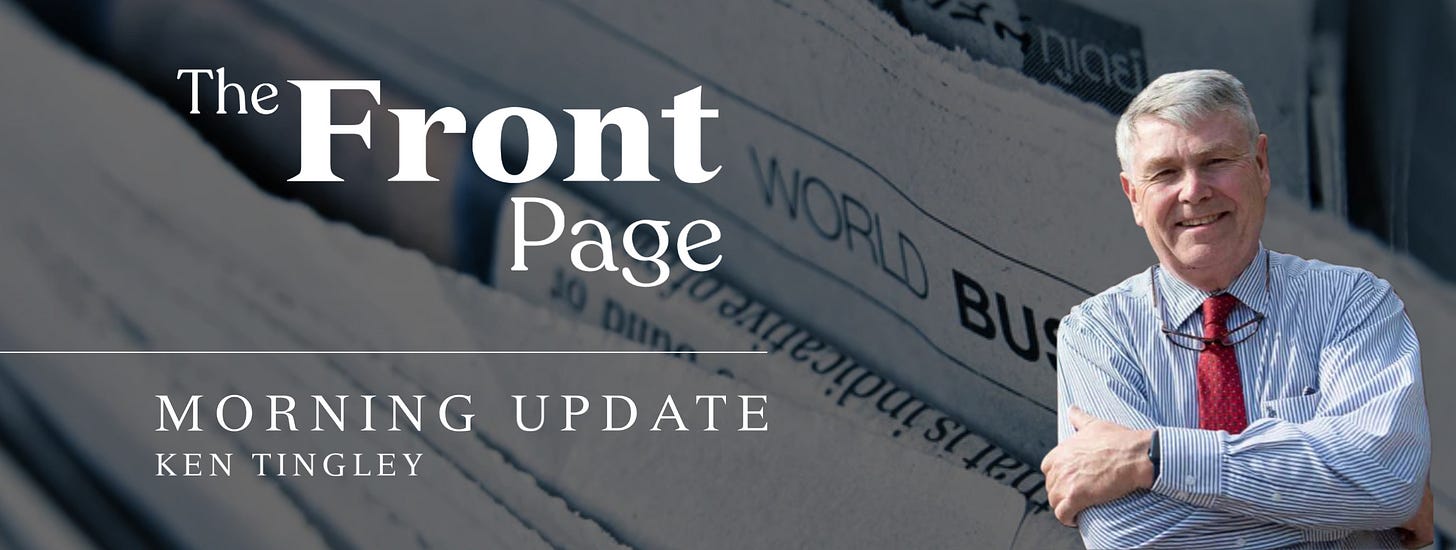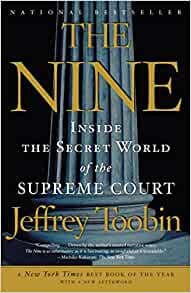Newspaper ethics far superior than anything currently in place on the Supreme Court
Lyme Disease documentary to be shown at Wood Theater on May 21
By Ken Tingley
The debates in our newsroom were often intense over ethics.
Where do you draw the line?
What makes sense and what is just silly?
As a member of the American Society of Newspaper Editors, I decided The Post-Star should adopt the ASNE code of ethics to guide us. I was pleasantly surprised to see it was still on poststar.com Sunday.
That’s a standard any public servant should abide by.
During my 21 years as editor,I don’t recall anyone in the newsroom complain that the policy was too rigid, although there were questions about degrees.
What was acceptable and what was not?
When an organization offered to cover a reporter’s expenses for a trip overseas if we wrote a story about it, we declined.
When a professional sports team offered to pay for our expenses on the road because we could not afford it, we also declined.
Neither was acceptable, although you could make a case that it might have made the newspaper better.
As editor of the newspaper, no one ever offered me a free trip in a private jet for an exotic overseas vacation.
No one ever offered to pay for my son’s pre-school or college tuition.
No political organization ever filtered money to my wife without explanation.
If they did, I believe our readers would find it suspicious and question my ethics and the affect the gifts might have on our coverage.
More simply, those gifts are not right.
Our great ethical debates in the newsroom often came down to whether we should allow a reporter to accept a T-shirt after covering a “fun run.”
It was not unusual for an organization or group to include a T-shirt or coffee mug as part of a media packet for an event they were holding.
Was that improper?
Did that give the appearance of impropriety?
At least one member of our staff thought so. Others wondered if it was OK if everyone else was getting one, too.
Still others wondered if we were making a mountain out of a molehill.
What about a lunch with a source or newsmaker?
We believed it was best to pay our half of the bill? But often that became uncomfortable or inconvenient. Sometimes, we agreed to pick up the tab the next time, but more often than not we split the check.
Over the years, people would send food to the newsroom; some to thank us for the work, others because as a new eatery in town they hoped we might get the word out, even if it was just word of mouth. I can remember bagels, pizza and donuts tantalizing our starving writers in the newsroom. Our policy was to send the food to the soup kitchen, even if the food outlet had no business before the newsroom.
We regularly received complimentary copies of books, merchandise and even T-shirts unsolicited to the newsroom.
We put each item in a special drawer in the newsroom and once or twice a year we auctioned off the freebies and gave the money to charity.
At the newspaper, we considered ourselves public servants and we had to be above reproach.
The United States Supreme Court should have the same standard.
But it doesn’t.
It doesn’t have any standard at all.
In 2007, author Jeffrey Toobin wrote about the Supreme Court in his book: “The Nine: Inside the Secret World of the Supreme Court.”
Toobin pointed out the justices belong to a fundamentally anti-democratic institution.
“They were not elected; they were not accountable to the public in any meaningful way; their life tenure gave them no reason to cater to the will of the people,” Toobin wrote.
Yet, from 1992 to 2005, the court decisions largely mirrored the popular opinion of the American public, largely because of moderate justices like Lewis F. Power and Sandra Day O’Connor.
Toobin predicted 15 years ago that would change. He called it a “powerful conservative rebellion against the court.”
“It has been, in many respects, a remarkable ideological offensive, nurtured at various times in such locales as elite law schools, evangelical churches and, most importantly and most recently, the White House,” Toobin wrote.
Remember this was 2007 when George W. Bush was president.
“It’s agenda has remained largely the same over the decades,” Toobin continued. “Reverse Roe vs. Wade and allow states to ban abortion. Expand executive power. End racial preference intended to assist African Americans. Speed executions. Welcome religion into the public sphere.”
Fifteen years later, we are seeing most of it coming to fruition.
That makes the recent revelations about Justice Clarence Thomas even the more insidious. It isn’t so much there was an obvious quid pro quo as it was a reward for maintaining his ideology.
The fact so many elected Republicans are not disgusted by the ethical lapses of the Supreme Court justice confirms the worst of their natures and the reality that politics is now an integral part of the judiciary.
Toobin concludes there is an illusion the Supreme Court operates on a higher plane that the rest of us.
But they don’t.
Justice Thomas’ actions have shown that.
Chief Justice John Roberts’ failure to address the problem shows it, too.
“But the court is a product of democracy and represents, with somewhat chilling precision, the best and the worst of the people.”
Quiet Epidemic screening
One of the highlights of last year’s Adirondack Film Festival was the Lyme Disease documentary “The Quiet Epidemic” produced and directed by local film makers Lindsey Keys and Winslow Crane-Murdoch.
The film will be shown again at 2 p.m. on Sunday, May 21 at the Wood Theater in Glens Falls. Tickets are $15.
There will be post-screening discussion with the co-directors as well as the film’s subjects - Dr. Richard Liegner and investigative journalist Mary Beth Pfeiffer. The panel discussion will be moderated by SUNY Adirondack professor Holly Ahern of the Lyme Action Network.
Clemson bound
After four years as a starter at Syracuse, Glens Falls native Joseph Girard will be playing his final year of college ball at Clemson.
Girard announced via Twitter on Sunday that Clemson was his choice over LSU. He chose to stay in the Atlantic Coast Conference for his final year where he will play his old team twice.
CBS sports ranked Girard 21st among the top 45 college players in the transfer portal. Here is what they said about the move:
“Girard quietly proved to be one of the sport's best volume 3-point shooters during four years at Syracuse. He hit 40.3% of his long-range tries on 6.7 attempts per game last season and 38.1% on 7.2 attempts as a senior in 2022-23 while leading the Orange in scoring. At 6-foot-1, he is undersized and limited defensively, especially after playing four seasons in Syracuse's patented zone defense. But it's easy to imagine Girard knocking down 3-pointers as a key role player for a Clemson team with NCAA Tournament aspirations.”
In another move, Girard teammate at Syracuse, Jesse Edwards, will be playing his final year at West Virginia.








The corruption in the SCOTUS is frightening.
A number of years ago I was voted in as a Town/Village justice…long story…The training was intense, informative and fascinating. As an aside…the only two branches of the judiciary that do not require a law degree are some state’s Town/Village courts and, you guessed it,
The US Supreme Court. Not that being a lawyer makes you a better judge- studies showed that lawyer judges were censured as much as non-layer judges. At training sessions, I was appalled at the lack of decorum from some attendees, mostly the Lawyers who sat in the back, talked amongst themselves and obviously resented being forced to sit through session they obviously felt they should have been exempt from attending.
As T&V judges we was told, very bluntly, that any actions or activity that might even hint at impropriety was to be vetted/approved by a supervising Justice. The local DA wanted to take me out to lunch…I had to decline. I was told I shouldn’t perform with the local community theater cause my name would appear in the playbill and people might feel compelled to attend. Though approval was given to judges playing on local softball teams - even though their names were emblazoned on the backs of their jerseys. But I digress, shame on the Supreme Court, shame on Congress for not imposing even rudimentary rules of ethics on the Supreme Court! Let us remember though, that when Congress makes laws for us they usually exempts themselves.